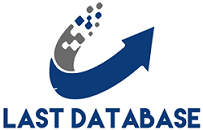Understanding Lead Generation Databases
A lead generation database is a centralized repository that stores valuable information about potential customers or leads. It serves as a comprehensive resource for businesses to manage and organize data collected through various marketing and sales channels. Key attributes of lead generation databases include:
Lead Information: Contact details, demographics, preferences, and behaviors of potential customers.
Lead Source: Information about where leads originated, such as website forms, social media interactions, or events.
Lead Engagement History: Records of interactions, engagements, and responses to marketing campaigns.
Lead Qualification: Criteria used to qualify leads based on their likelihood to convert into customers.
Benefits of Lead Generation Databases
1. Enhanced Lead Management
Lead generation databases streamline the process of capturing, organizing, and managing leads effectively. Businesses can categorize leads based on their stage in the sales funnel, prioritize follow-ups, and tailor marketing efforts to nurture leads towards conversion.
2. Targeted Marketing Campaigns
By leveraging data stored in lead generation databases, businesses can create targeted marketing campaigns that resonate with specific audience segments. This allows for personalized communication, relevant content delivery, and increased engagement with potential customers.
3. Improved Sales Efficiency
Access to detailed lead information enables sales teams to prioritize leads with the highest potential for conversion. Sales representatives can utilize insights from the database to tailor their approach, address customer needs more effectively, and increase the likelihood of closing deals.
4. Data-Driven Decision Making
Lead generation databases provide valuable insights through analytics and reporting features. Businesses can analyze trends, track campaign performance, measure ROI, and make data-driven decisions to optimize marketing strategies and allocate resources more effectively.
Best Practices for Using Lead Generation Databases
1. Data Accuracy and Integrity
Ensure that lead information stored in the database is accurate, up-to-date, and compliant with data protection regulations (e.g., GDPR, CCPA). Regularly validate and clean data to maintain its quality and reliability.
2. Integration with CRM Systems
Integrate lead generation databases with Customer Relationship Management (CRM) systems to facilitate seamless lead management, automate workflows, and synchronize data across departments.
3. Segmentation and Personalization
Segment leads based on demographics, behaviors, and interests to deliver Phone Number HK
personalized marketing messages and offers. Tailor content to address specific pain points and preferences, increasing engagement and conversion rates.
4. Continuous Optimization
Regularly assess and optimize lead generation strategies based on performance metrics and feedback. Test different approaches, refine targeting criteria, and adapt strategies to evolving market trends and customer behaviors.
Conclusion
Lead generation databases serve as invaluable tools for businesses seeking to attract, engage, and convert potential customers into loyal advocates. By centralizing lead information, optimizing data management practices, and leveraging insights for targeted marketing efforts, businesses can enhance their competitive edge, drive revenue growth, and achieve long-term success in today's dynamic marketplace.

This article highlights the importance of lead generation databases in modern business strategies, emphasizing their role in enhancing lead management, enabling targeted marketing campaigns, improving sales efficiency, and facilitating data-driven decision-making. By implementing best practices for data accuracy, integration, segmentation, and continuous optimization, businesses can maximize the effectiveness of their lead generation efforts and foster sustainable growth.


